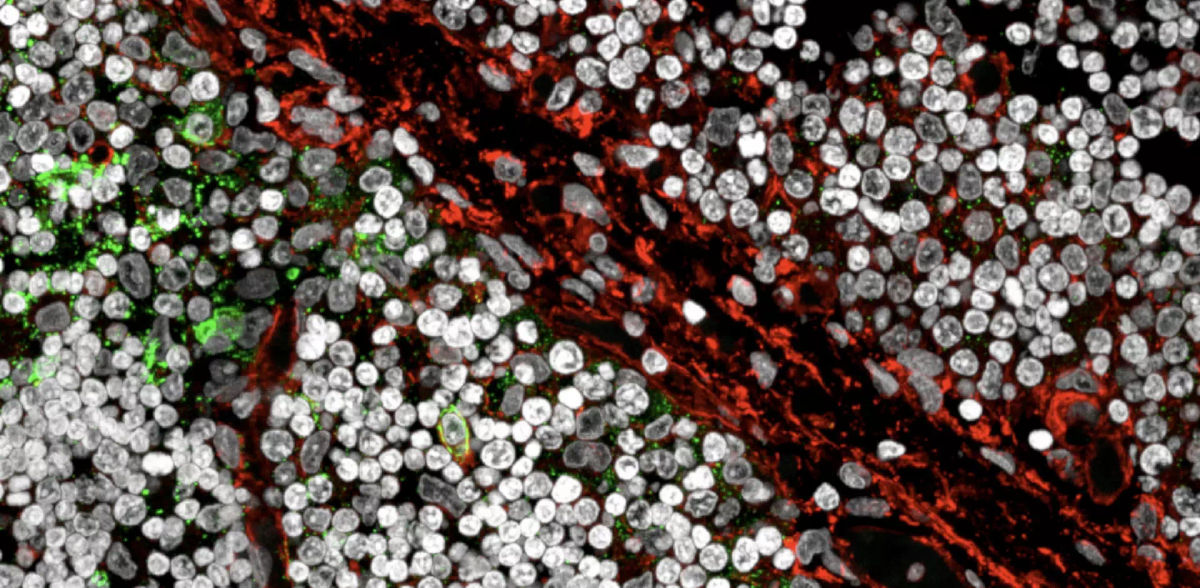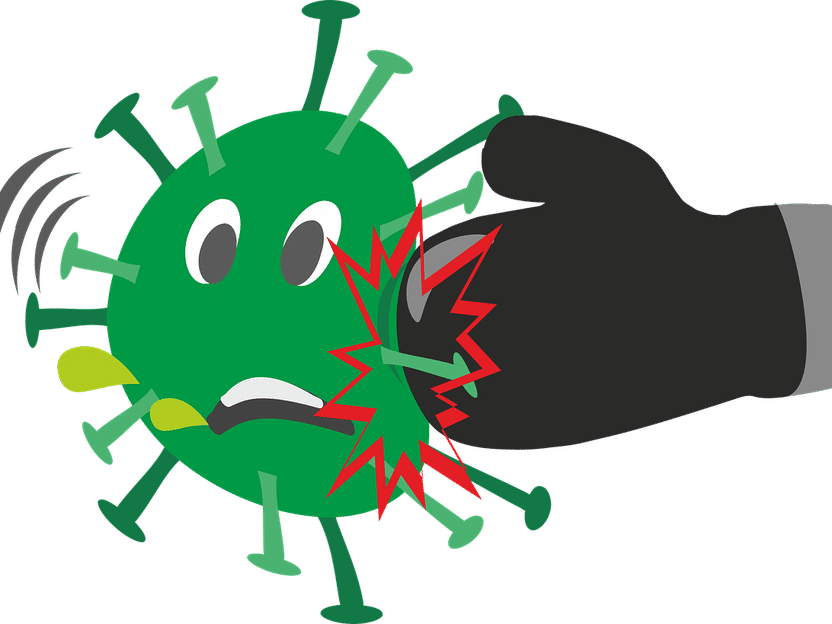Possible trigger for autoimmune diseases discovered
B cells teach T cells which targets must not be attacked
immune cells must learn not to attack the body itself. A team of researchers from the Technical University of Munich (TUM) and the Ludwig Maximilian University of Munich (LMU) has discovered a previously unknown mechanism behind this: other immune cells, the B cells, contribute to the "training" of the T cells in the thymus gland. If this process fails, autoimmune diseases can develop.
In children and adolescents, the thymus gland functions as a "school for T cells". The organ in our chest is where the precursors of those T cells that would later attack the body's own cells are discarded. Epithelial cells in the thymus present a large number of molecules that occur in the body to the future T cells. If any of them reacts to one of these molecules, a self-destruction program is triggered. T cells that attack the body's own molecules remaining intact and multiplying, on the other hand, can cause autoimmune diseases.
New mechanism discovered
In Nature, the team led by Thomas Korn, Professor of Experimental Neuroimmunology at TUM and a Principal Investigator in the SyNergy Cluster of Excellence, and Ludger Klein, Professor of Immunology at LMU’s Biomedical Center (BMC), describe another previously unknown mechanism behind this.
In addition to the precursors of T cells, the thymus gland also contains other immune cells, the B cells. They develop in the bone marrow but migrate to the thymus in early childhood. "The function of B cells in the thymus gland has been a mystery that has puzzled immunologists for many years," says Thomas Korn. The researchers have now been able to show for the first time that B cells play an active role in teaching T cells which targets not to attack.
MS-like disease due to malfunction in tolerance formation
Neuromyelitis optica is an autoimmune disease similar to multiple sclerosis (MS). While it is not yet known which molecules are attacked in MS, it is well-established that T cells respond to the protein AQP4 in neuromyelitis optica. AQP4 is most prominently expressed in cells of the nervous tissue, which then becomes the target of the autoimmune reaction. Frequently, the optic nerve is affected.
The researchers were able to show that in the thymus gland of humans and mice not only the epithelial cells but also B cells express and present AQP4 to the T cell precursors. If the B cells were prevented from doing so in animal experiments, AQP4-reactive T cell precursors were not eliminated and the autoimmune disease developed. This was also the case when the epithelial cells still presented the molecule. The team concludes from this that B cells in the thymus are a necessary condition for immune tolerance regarding AQP4.
Protection against subsequent interactions between cells
"We suspect that this previously unknown process has evolved particularly to prevent dangerous interactions between autoreactive T and B cells in the lymph nodes and spleen, the so-called peripheral immune compartment," says Ludger Klein. Once the immune system is developed, B and T cells can communicate and thus trigger highly effective immune reactions. This is useful when it comes to fighting pathogens quickly. On occasion, however, B cells may accidentally present the body's own proteins, such as AQP4. If the T cells that react to AQP4 had not been sorted out in the thymus, this could lead to a sudden and violent large-scale attack on the body.
Possible cause of other immune disorders
"We assume that problems with the training of T cells by the B cells in the thymus can cause other autoimmune diseases as well," says Thomas Korn. "After all, the B cells in the thymus present a whole range of the body's own proteins. The corresponding interactions must be investigated in further studies."
According to the researchers, likely suspects include antiphospholipid syndrome (APS) and certain forms of cerebral amyloid angiopathy. "Looking further into the future, this interaction in the thymus might be exploited to treat existing autoimmune diseases in a very targeted manner," says Thomas Korn.

























































